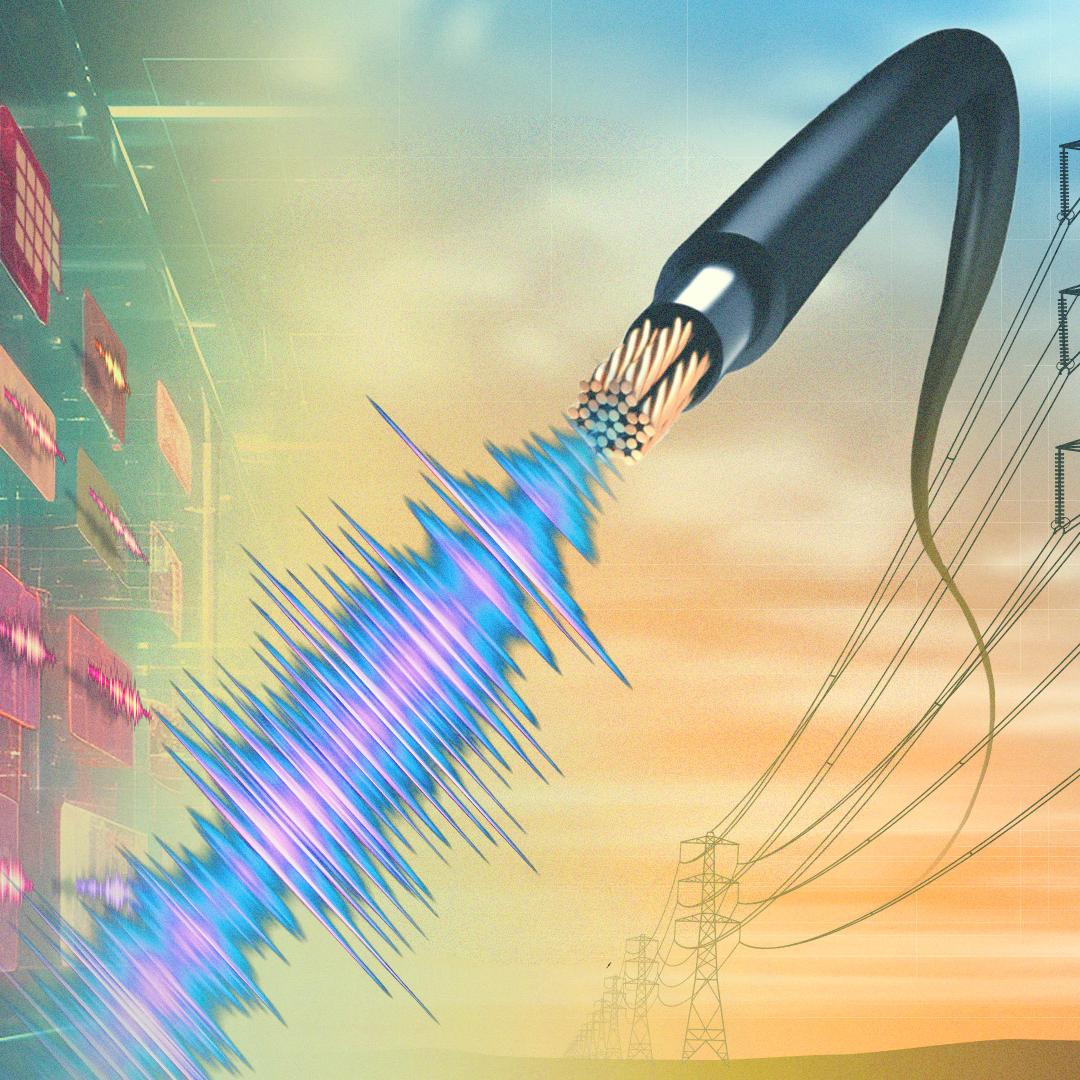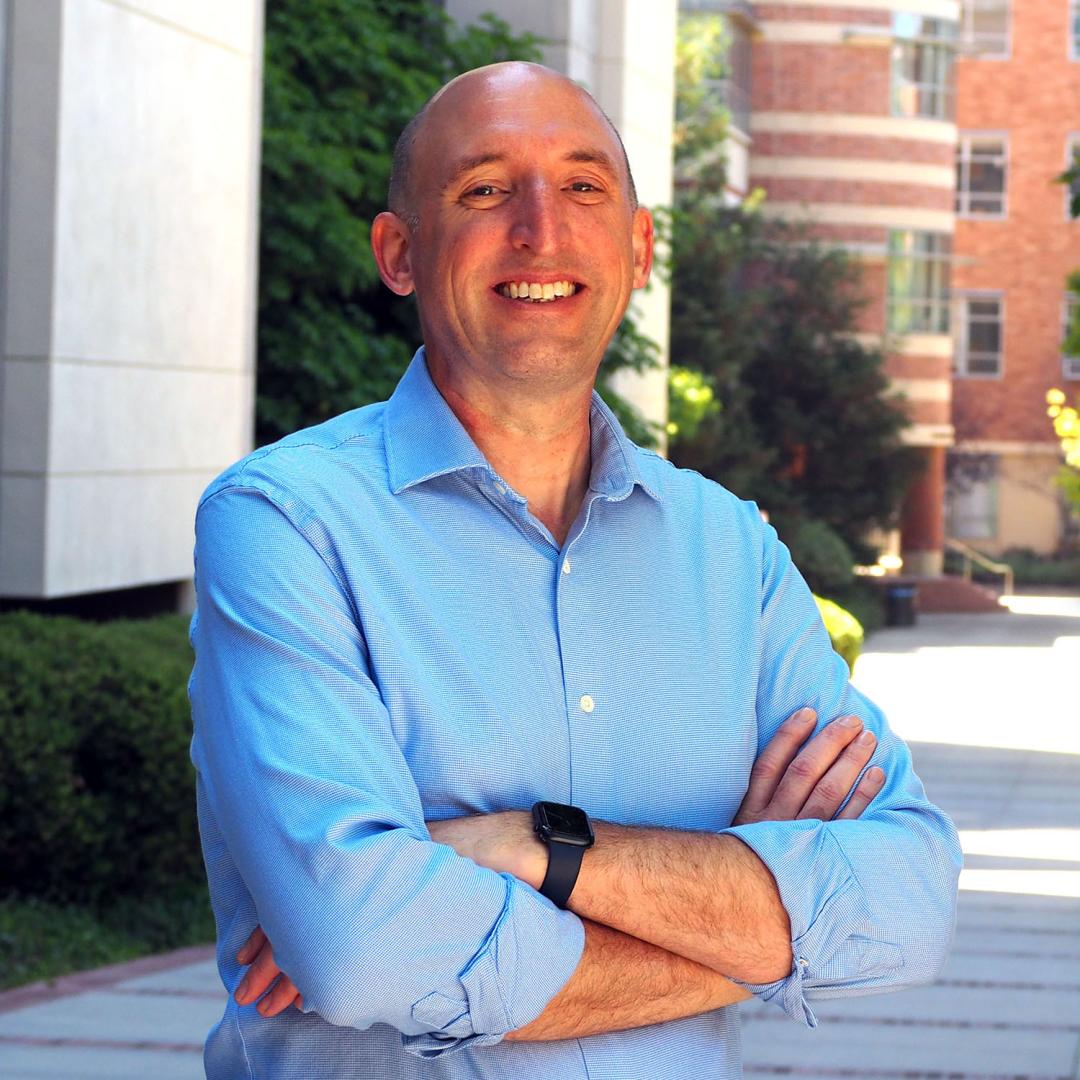
Filter News
Area of Research
- (-) Biology and Environment (59)
- (-) Clean Energy (87)
- (-) National Security (17)
- (-) Supercomputing (73)
- Advanced Manufacturing (3)
- Biology and Soft Matter (1)
- Climate and Environmental Systems (2)
- Computational Biology (1)
- Computational Engineering (1)
- Computer Science (5)
- Electricity and Smart Grid (3)
- Energy Frontier Research Centers (1)
- Functional Materials for Energy (1)
- Fusion and Fission (28)
- Fusion Energy (15)
- Isotopes (1)
- Materials (115)
- Materials for Computing (15)
- Mathematics (1)
- Neutron Science (102)
- Nuclear Science and Technology (22)
- Nuclear Systems Modeling, Simulation and Validation (1)
- Quantum information Science (9)
- Sensors and Controls (1)
News Topics
- (-) Advanced Reactors (8)
- (-) Climate Change (69)
- (-) Fusion (4)
- (-) Grid (47)
- (-) Microscopy (20)
- (-) Nanotechnology (18)
- (-) Neutron Science (24)
- (-) Physics (9)
- (-) Quantum Science (26)
- 3-D Printing/Advanced Manufacturing (83)
- Artificial Intelligence (52)
- Big Data (33)
- Bioenergy (66)
- Biology (82)
- Biomedical (32)
- Biotechnology (17)
- Buildings (37)
- Chemical Sciences (20)
- Clean Water (19)
- Composites (19)
- Computer Science (123)
- Coronavirus (33)
- Critical Materials (12)
- Cybersecurity (28)
- Decarbonization (49)
- Energy Storage (76)
- Environment (145)
- Exascale Computing (25)
- Fossil Energy (2)
- Frontier (28)
- High-Performance Computing (54)
- Hydropower (9)
- Isotopes (2)
- Machine Learning (30)
- Materials (50)
- Materials Science (44)
- Mathematics (5)
- Mercury (10)
- Microelectronics (1)
- Molten Salt (1)
- National Security (37)
- Net Zero (6)
- Nuclear Energy (14)
- Partnerships (15)
- Polymers (14)
- Quantum Computing (19)
- Renewable Energy (2)
- Security (17)
- Simulation (25)
- Software (1)
- Space Exploration (6)
- Statistics (1)
- Summit (47)
- Sustainable Energy (94)
- Transformational Challenge Reactor (3)
- Transportation (72)
Media Contacts
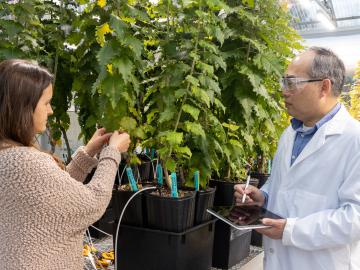
Nature-based solutions are an effective tool to combat climate change triggered by rising carbon emissions, whether it’s by clearing the skies with bio-based aviation fuels or boosting natural carbon sinks.
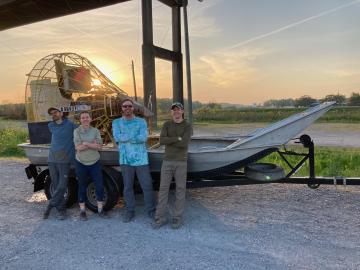
As a biogeochemist at ORNL, Matthew Berens studies how carbon, nutrients and minerals move through water and soil. In this firsthand account, Berens describes recent fieldwork in Louisiana with colleagues.
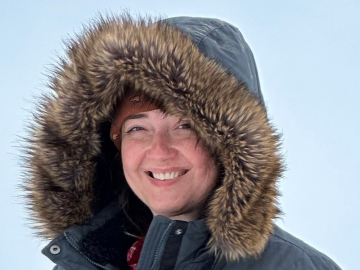
Colleen Iversen, ecosystem ecologist, group leader and distinguished staff scientist, has been named director of the Next-Generation Ecosystem Experiments Arctic, or NGEE Arctic, a multi-institutional project studying permafrost thaw and other climate-related processes in Alaska.
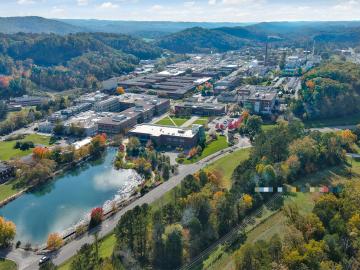
Inspired by one of the mysteries of human perception, an ORNL researcher invented a new way to hide sensitive electric grid information from cyberattack: within a constantly changing color palette.
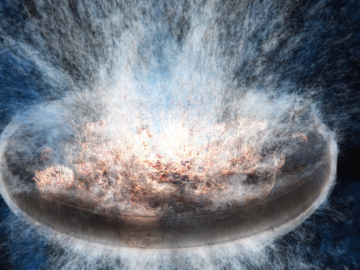
A trio of new and improved cosmological simulation codes was unveiled in a series of presentations at the annual April Meeting of the American Physical Society in Minneapolis.
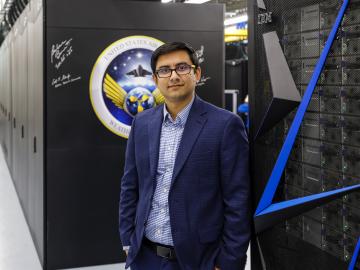
Climate change often comes down to how it affects water, whether it’s for drinking, electricity generation, or how flooding affects people and infrastructure. To better understand these impacts, ORNL water resources engineer Sudershan Gangrade is integrating knowledge ranging from large-scale climate projections to local meteorology and hydrology and using high-performance computing to create a holistic view of the future.

A study led by Oak Ridge National Laboratory researchers identifies a new potential application in quantum computing that could be part of the next computational revolution.

Researchers at ORNL have developed a machine-learning inspired software package that provides end-to-end image analysis of electron and scanning probe microscopy images.
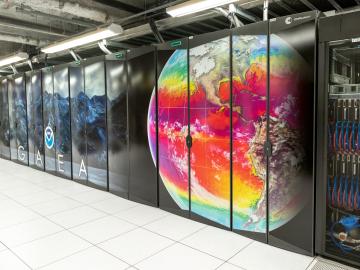
Oak Ridge National Laboratory, in partnership with the National Oceanic and Atmospheric Administration, is launching a new supercomputer dedicated to climate science research. The new system is the fifth supercomputer to be installed and run by the National Climate-Computing Research Center at ORNL.
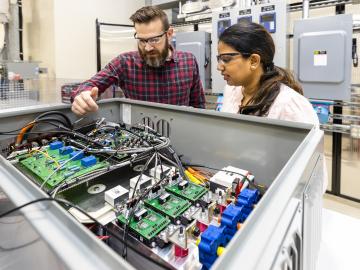
Researchers at ORNL are helping modernize power management and enhance reliability in an increasingly complex electric grid.


